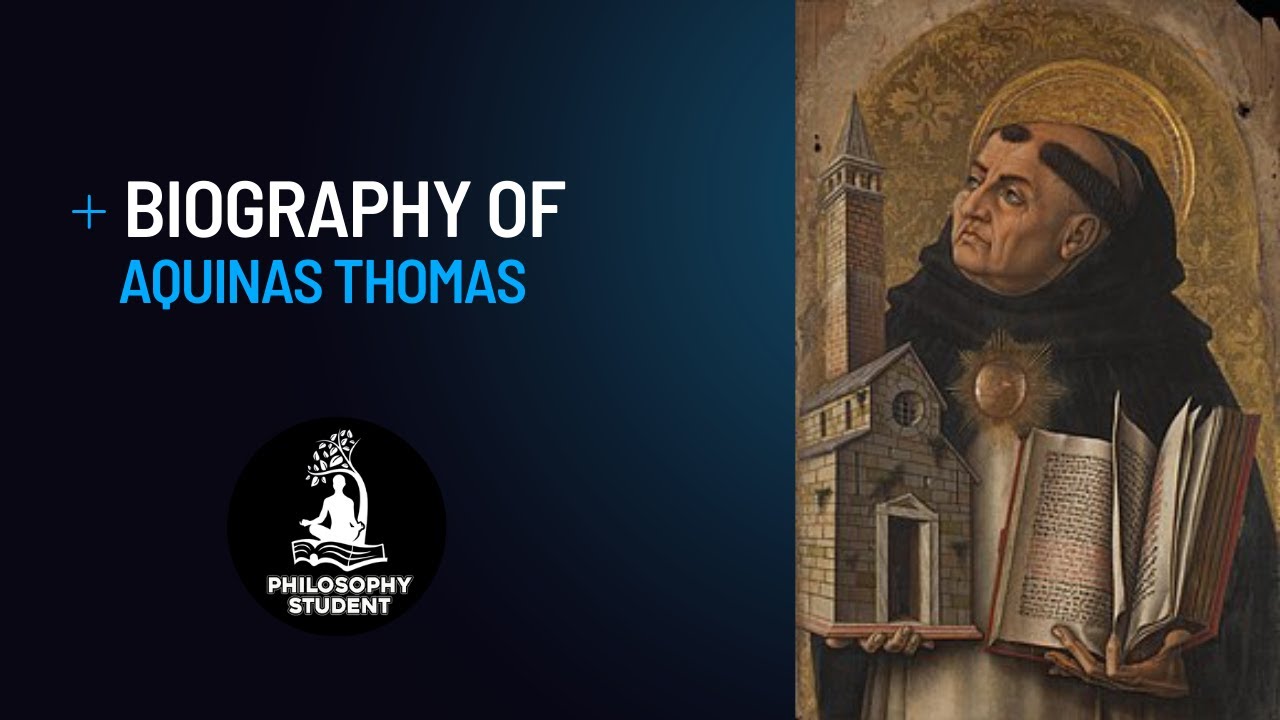Thomas Aquinas (1225–1274) was an intellectual very much of his age. Only recently had Aristotle been translated from Greek (read by few theologians) into medieval Latin (read by many of them), igniting a debate between those who advocated the supremacy of Christian faith and those who elevated the status of reason. Both a theologian and a philosopher, Aquinas, who was recognized as a great interpreter of Aristotle, struggled to reconcile theology with philosophy.
Thomas Aquinas was born in 1225 at Roccasecca, a hilltop village midway between Rome and Naples. He began his studies at the tender age of five in the monastery at Montecasino and later studied at the University of Naples. He became a Dominican monk and continued his studies at the University of Paris, where he met the great Dominican scholar Albertus Magnus, whom he subsequently followed to the University of Cologne. In 1252, he returned to Paris, where he earned a master’s degree in theology and taught through 1259. He then served in Italy in various offices at the behest of the Pope. He died on March 7, 1274, at Fossanova, Italy, from an illness following a head injury.
Aquinas wrote voluminously on the works of Aristotle (On the Soul, On Interpretation, Nichomachean Ethics, and Metaphysics), in which connection he evolved a view of epistemology that sought to reconcile divine revelation with the natural human faculties of perception and understanding. Ultimately, however, Aquinas subordinated the Aristotelian elevation of rationality (the human capacity for understanding via the senses) to divine revelation in those instances in which the two apparently conflict. Despite his elevating theology over philosophy, Aquinas’s epistemological outlook has been described as a “double truth theory,” in which religion and philosophy might arrive at mutually exclusive conclusions yet without detriment to either religion or philosophy.
Aquinas was also an ethical, legal, economic, and political philosopher. His ethics were based on “first principles of action,” by which acts are virtuous insofar as they are prescribed by “natural law.” Nature does not always appear virtuous, but acts conforming to natural law are seen to be virtuous by “inquiry of reason.” For Aquinas, four cardinal virtues, prudence, temperance, justice, and fortitude, flow from natural law. These exist alongside three theological virtues, faith, hope, and charity. Human law, Aquinas argued in his Treatise on Law, coexists with both natural law and eternal law, natural law defined as human participation in God’s eternal law. Economic acts are both ethical and just, provided sellers sell at a “just price,” defined as a price that covers the costs of production.
Politically, Aquinas recognized division of labor as a cornerstone of society but made a sharp distinction between being a “good man” and a “good citizen,” defining an aspect of individual autonomy with which the state might not interfere. Libertarians thus point to Aquinas as a source of their political philosophy.
Thomas Aquinas’s best-known epistemological work is Disputed Questions of Truth (1256-1259), which essentially explores the extent to which people can teach one another. His magnum opus is the unfinished Summa Theologica (1265-1274), a great compendium of all the theological teachings of the Catholic Church, which, however, veers profoundly into philosophy by presenting five arguments for the existence of God.
At the spiritual heart of Aquinas’s thought is theology, the interpretation of divinely revealed truth. At the intellectual heart of his philosophy is epistemology, as evidenced by the five arguments for the existence of God presented in the Summa. While both theologians and philosophers lay claim to the legacy of Thomas Aquinas, and while Christians regard his as the most important founding voice of Christian philosophy, Aquinas considered himself, first and last, a theologian rather than a philosopher.




































